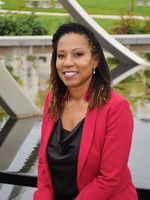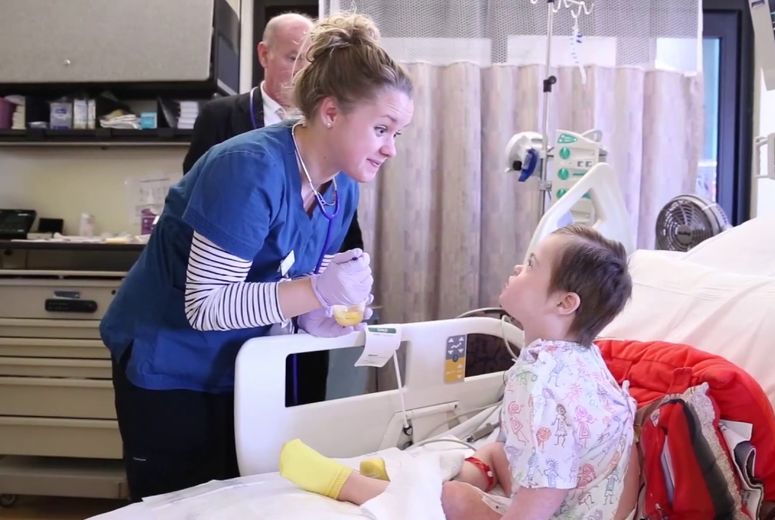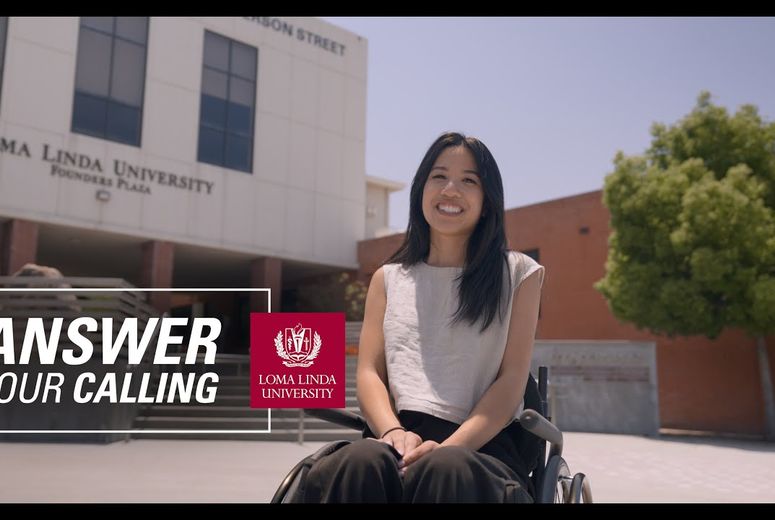
Welcome!
The Master of Science in Communication Sciences and Disorders program at Loma Linda University is a seven-quarter, full-time program designed to prepare students for success as speech-language pathologists. The curriculum blends advanced coursework with supervised clinical experiences across medical, educational, and community settings, ensuring graduates develop the knowledge and hands-on skills required for effective practice. Students also gain exposure to specialty clinics, research opportunities, and interprofessional collaboration, building a strong foundation for leadership in the field. Upon completion, graduates are eligible for California licensure, the Preliminary Speech-Language Pathology Services Credential, and ASHA certification.
Schedule a Consultation Request INFORMATION
Why Choose LLU's M.S. Program in Communication Sciences and Disorders?
-
Early and Diverse Clinical Experience – Begin hands-on training in specialty clinics and community settings during your first quarter.
-
Small Cohort Model – Benefit from personalized attention, strong faculty mentorship, and a collaborative learning environment.
-
Graduate Assistantship Opportunities – Gain valuable experience and financial support through on-campus roles.
-
Faith and Mission Focus – Learn in a values-driven environment that emphasizes compassionate service and whole-person care.
The Loma Linda Difference
The Master of Science in Communication Sciences and Disorders program at Loma Linda University is grounded in our historic institution’s pillars, preparing students to approach their profession with integrity, compassion, and a commitment to holistic care. The program reflects LLU’s dedication to nurturing mind, body, and spirit in both learning and practice.
Just a few ways LLU’s pillars shape your graduate experience include:
-
Whole-Person Care – Emphasis on integrating physical, mental, and spiritual well-being in professional practice.
-
Mission and Service – Opportunities to serve local and global communities while applying ethical and compassionate care.
-
Excellence in Education – Access to rigorous academics, interprofessional collaboration, and mentorship across disciplines.
Program Overview
Admissions Requirements and Application Process
Admissions Requirements
Bachelor’s degree in speech-language pathology, communicative disorders, or equivalent coursework (see Master of Science–Transitional Program)
Completion of a post-baccalaureate program (documentation required)
At least one undergraduate course in biological sciences, physical sciences, statistics, and social/behavioral sciences
Minimum cumulative GPA of 3.0, with at least a 3.3 GPA in the last 96 quarter or 64 semester unit
Personal statement (submitted online)
Three letters of recommendation, preferably academic
Official transcripts from all colleges and universities attended
Interview including writing sample and written communication assessment (by invitation)
GRE and Basic Skills exams (e.g., CBEST) are not required
Application Process
The application opens on October 1 and must be completed by January 1 for admission to the following fall quarter. The admissions committee reviews applications in early January and sends interview invitations in late January. Interviews and written communication assessments are conducted in February, with admission decisions typically released 3 to 4 weeks later, usually in early March.
Transcript Submission Address
Official transcripts must be sent directly to:
Loma Linda University
Admissions Processing
11139 Anderson Street
Loma Linda, CA 92350
Important Dates
October 1 — Application opens
January 1 — Application deadline (all materials must be submitted)
Early January — Admissions committee begins reviewing applications
Late January — Interview invitations sent
February — Interviews and written communication assessments conducted
Early March — Admission decisions released
April 15 — Deadline to submit $200 confirmation deposit
Early June — Teams group access for accepted students
First week of September — Course registration opens
Last Monday in September — Program begins
After Acceptance
Accepted students receive notification by mail and email, which includes a link to submit a $200 confirmation deposit online. This deposit must be paid by April 15 to secure enrollment. After acceptance, there is a 4- to 5-month waiting period before the program begins on the last Monday in September.
In early June, accepted students are added to a Teams group for updates and networking. In August, registration instructions are sent, and course registration opens during the first week of September. Students must not schedule vacations during September, as required pre-session events occur before the start of the program. Exact dates for these events are provided by the Director of Clinical Education.
Program Resource Links
Clinical Practicum and Orientation
Clinical Practicum
Graduate students are eligible for clinical practicum if they:
Maintain a minimum 3.0 GPA with no grade below C
Provide documentation of current CPR certification
Provide the CA CTC Certificate of Clearance
The Director of Clinical Education assigns students to clinical sites each quarter. First-year students are placed in at least one clinic per quarter, including summer, with schedules ranging from ½ day to 3½ days per week plus preparation and supervision.
Students rotate through specialty clinics such as autism, phonology, voice, early intervention, stuttering, and school-age speech sound disorders.
After successful completion of first-year clinics, students advance to CMSD 597 Fieldwork II and CMSD 588 Educational Fieldwork II during the second year. Completion of Fieldwork II is required before assignment to the second experience.
Some students may need to complete one or both final quarters out of state. Advance notice is given for planning purposes.
Praxis Exam
Required for ASHA Certification, CA License, and CA School Credential. A passing score of 162 is needed. The exam can be taken during or after the program. Details: www.ets.org/praxis.
Progress Reviews & Remediation
Student progress is reviewed quarterly with written feedback and annual advisor meetings.
Graduates who do not pass the Praxis may retake courses/seminars and join prep workshops at no cost.
Retaking a course is offered at half tuition but may delay program completion.
Students who fail clinical expectations must repeat the practicum and follow an individualized remediation plan.
Clinic Orientation
Clinic Orientation begins in mid-September, covering clinic procedures, program details, and preparation for speech-language and hearing screenings.
Clinic Bootcamp
Held over 3–4 days following program orientation, this training equips students with the skills needed for clinical success.
Speech-Language & Hearing Screenings
All new graduate students participate in multiple screening days before the fall quarter begins. Assignments and schedules are provided by the Director of Clinical Education.
Program Learning Outcomes & Student Achievement Data
Program Learning Outcomes (PLO's)
Students meet the following learning outcomes:
- Synthesize information regarding characteristics & etiologies of communication disorders and differences and swallowing disorders in children and adults.
- Integrate skills in assessment of human communication disorders and differences in swallowing disorders with a variety of clinical populations.
- Plan and implement an intervention program for a variety of clinical populations across the age span.
- Critically apply research design, statistical analyses, and interpretation of literature related to evidence-based practice and specific research topics.
- Incorporate cultural responsiveness to diversity (e.g., linguistic, neurological, economic, age, sexual, gender, ability, racial) within academic and/or professional environments.
- Implement counseling principles and practices related to the discipline of speech-language pathology across the lifespan.
- Identify, discuss, and apply service-learning principles (specifically cooperation, critical reflection, and discipline-specific application through engaged partnership with the community.
- Incorporate basic components of professional ethics in academic scenarios regarding treating, counseling, advocating for, and documenting care for clients.
On-time Program Completion Rates
| Period | # Completed with Expected Time Frame | # Completed Later than Expected Time Frame | # Students who did not Complete Program | % Completed within Expected Time Frame |
| 2025 | 32 | 0 | 1 | 97% |
| 2024 | 33 | 1 | 0 | 97% |
| 2023 | 33 | 1 | 0 | 97% |
Praxis Examination Pass Rates of Test-takers
| Reporting Period | # Taking the Exam | # Passed Exam | % Passed Exam Rate |
| 2025 | 17 | 15 | 88% |
| 2024 | 22 | 18 | 82% |
| 2023 | 25 | 24 | 96% |
Certificate of Clearance
Graduate students are automatically enrolled in the California Credential Program (for work in the public schools). In order to do clinical work in the public schools, the Certificate of Clearance is needed. All new students must complete the Certificate of Clearance process prior to Clinic Orientation (typically the second week of September). To complete this process, go to: http://www.ctc.ca.gov/.
- Click on “Online Services for Educators.”
- On the Educator Page, click on “Submit Your Application for a New Type of Document – (Direct Web Application)”.
- Then click on “How to Submit Your Direct-Web Application”
- This will take you to detailed instructions regarding the Certificate of Clearance, completing the Live Scan and the online clearance process.
- It is not necessary to bring any form of verification that you have completed this process. The department Director of Clinical Education is able to verify your activity online.
Note: No student will be allowed to start clinic until the Certificate of Clearance has been awarded by CTC.
Background Check
As part of the registration process, the university requires all students to complete a current background check. You will receive notification directly from University Student Services. **Note: This is not the same as “Live Scan” or “Certificate of Clearance.”
Current TB Screening:
All students are required to have current TB screening. The Director of Clinical Education will provide you with instructions on how to get verification of your current TB screening to her. It is best that you have it done before you attend the pre-sessions. Note that if you are having your TB test done through LLU, get a copy of the paperwork/results before you leave the facility where you are tested. Student Health Services does not send us a copy.
Note: No student will be allowed to start clinic until an electronic copy of the TB screening is on record. Additionally, students will not be able to register for winter quarter until the department has record of their TB screening.
CPR Certification
All students in this department are required to have current health care provider Cardiopulmonary Resuscitation (CPR) certification (adult, child, infant). Certification through the American Heart Association is required in the department. This class may not be an online class. Classes are available on campus at Life Support Education, University Arts Bldg., 24887 Taylor St., Suite 102, or phone at 909-558-4977. However, you may take them from any American Heart Association.
Accreditation
The Master of Science (M.S.) degree in speech-language pathology residential program at Loma Linda University is accredited by the Council on Academic Accreditation in Audiology and Speech-Language Pathology of the American Speech-Language-Hearing Association, 2200 Research Boulevard, #310, Rockville, MD 20850, 800-498-2071 or 301-296-5700.



